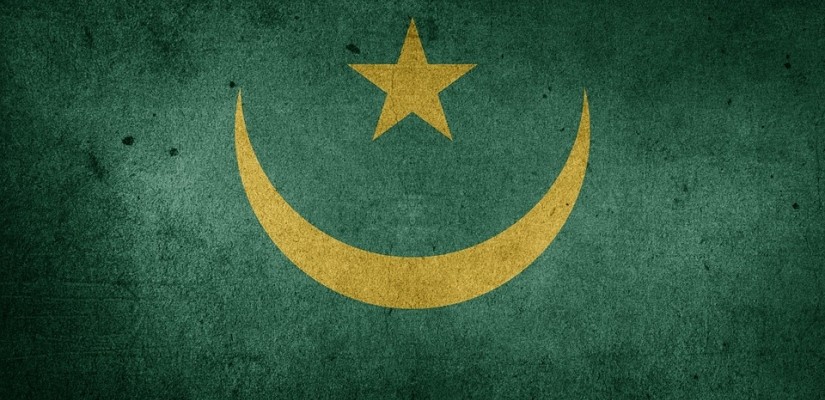A peaceful democratic transition was anticipated during the reportedly calm presidential election campaign in Mauritania. The results of the election on June 22, 2019, however, caused vocal resistance from the political opposition and citizens. Gaining 52% of all votes, the candidate of the ruling party and former Minister of Defense, Mohamed Ould Ghazouani, was elected president. Opposition candidates Biram Dah Abeid and Mohamed Ould Boubacar received 18.5% and 17.9% of the votes, respectively. The emergence of civil protests after the election demonstrates that political and ethnicity-related issues are still deep-rooted in the Northwest African state.
Although Mauritania is approximately three times as large as Germany, it has a population of only 4.5 million inhabitants. After Mauritania gained independence from France in 1960, its people continued to struggle for political stability and democracy. A series of coups between 1978 and 2008 plunged the country into a crisis. General Mohamed Ould Abdel Aziz started a coup d'état, seizing control of the country in 2008, and legitimized his position with the presidential election in 2009. He was re-elected in 2014 but refrained from violating constitutional regulations and did not run for office a third time. During the 2019 election campaign, Mohamed Ould Abdel Aziz championed his successor Mohamed Ould Ghazouani instead, proving successful in his endeavor as the election results show.

The period shortly before the 2019 election was described as a pivotal moment for democracy in Mauritania by observers from France, the European Union, and Africa for its peaceful, regulated conduct. Despite such factors, contesters Abeid, Boubacar, and Mohamed Ould Maoloud stated after the announcement of the result that they would appeal the outcome, citing voting irregularities as the cause of their resistance. Citizens backing the opposition revolted in the streets, leading to the arrest of several dozen protestors, including immigrants from neighboring Senegal, Mali, and Gambia. Concerns about the military background of victor Ghazouani is another factor that may have caused the uproar. The country had struggled with military coups for years. The most recent example is incumbent President Abdel Aziz, who came to power by a military coup in 2008 after he overthrew former President Sidi Ould Cheikh Abdallahi. The opposition may fear that the 2019 election is another episode of someone with a military background seizing power, even if president-elect Ghazouani no longer holds a position in the military. His close ties with President Abdel Aziz, however, may cause concern since Ghazouani was groomed to become the next president by Abdel Aziz. In reaction to the unrest, the government blocked all mobile and landline internet services in an attempt to bring the situation under control.
The question of ethnicity is a central issue that can be identified as an underlying cause of the eruption of political unrest in the aftermath of the election. There is a division between the Arab-Berber and the Sub-Saharan African population in Mauritania. Resentment among the population of Sub-Saharan descent towards the Arab-Berber population can be traced back to the sentiment that Sub-Saharan Africans are still regarded as foreigners or underclass and are not accepted as full members of society. Another issue raising political tension concerns the Haratin people, who were once slaves. While slavery was officially abolished in Mauritania in 1981, laws protecting against slavery have only been implemented since 2007. Remnants of slavery are said to still permeate a relatively large part of Mauritanian society. President Abdel Aziz, however, denied the existence of slavery during the course of his term in office. The human rights situation in Mauritania was addressed during the 2019 election campaign, and Abeid, who came in second place, stressed the importance of eradicating slavery and improving the life quality of the Haratin people.
During the election campaign, Ghazouani promised the people continuity and security. Protesters fear that president-elect Ghazouani will continue President Abdel Aziz’s policy of “stability through repression”. Democracy in Mauritania is relatively young and must develop further in order to acquire long-term stability. In terms of economic stability, Mauritania possesses a wealth of resources, relying on profits from gold, copper, and iron. A new cooperation project with Senegal to extract gas from an offshore natural gas field at the border promises to additionally boost the economic situation. While economic wealth can facilitate political stability, Mauritania continues to struggle with minimizing poverty rates. A large portion of the Mauritanian population lives in poverty, posing additional challenges to the new president of Mauritania. It appears that contesters do not place their hopes in Ghazouani, who will assume office on August 2, 2019, to resolve ethnicity, human rights, and poverty issues, which is why it remains to be seen whether he can improve these issues of contention.
